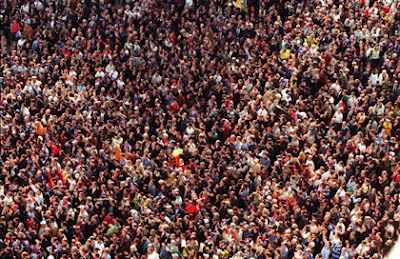
Quigley here to dispel another widely-held belief. The idea that as many people are alive today as have ever lived is untrue. Population growth in human history reached the following milestones:
- 1 billion in 1804
- 2 billion in 1927
- 3 billion in 1960
- 4 billion in 1974
- 5 billion in 1987
- 6 billion in 1999
The math involves changes in birth rates and life expectancy, and was pioneered by Harvard demographer and statistician Nathan Keyfitz (1913-2010). It was British scholar Rev. Thomas Robert Malthus (1766-1834) who 1st pointed out that food supply increases arithmetically, while population increases exponentially, meaning that at some future point the world's population will become unsustainable. Malthus wrote in An Essay on the Principle of Population (1798):
"The power of population is so superior to the power of the earth to produce subsistence for man, that premature death must in some shape or other visit the human race. The vices of mankind are active and able ministers of depopulation. They are the precursors in the great army of destruction, and often finish the dreadful work themselves. But should they fail in this war of extermination, sickly seasons, epidemics, pestilence, and plague advance in terrific array, and sweep off their thousands and tens of thousands. Should success be still incomplete, gigantic inevitable famine stalks in the rear, and with one mighty blow levels the population with the food of the world."There is some debate these days about whether the Industrial Revolution permanently altered this trajectory or merely staved off a Malthusian catastrophe.









No comments:
Post a Comment
You may add your comments here.